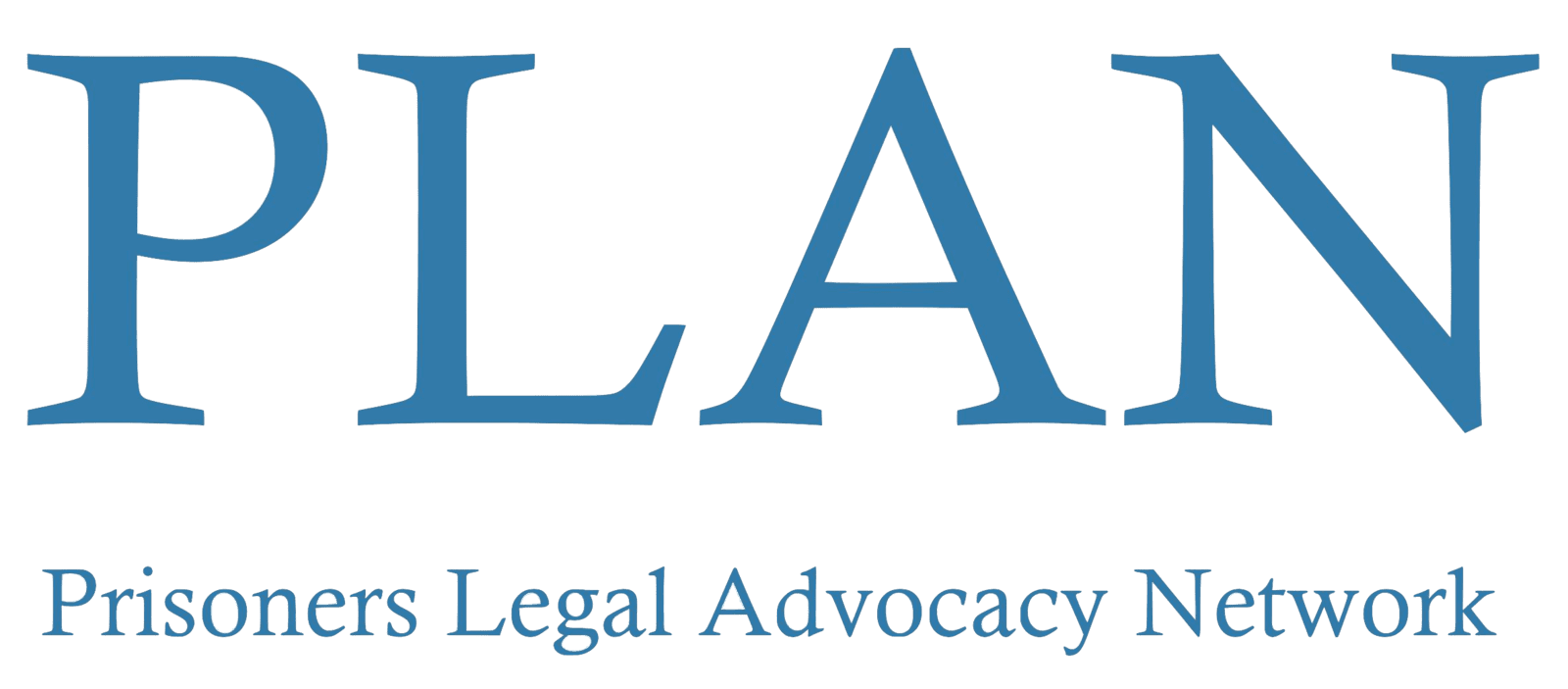
Jailhouse Law Library
PLAN’s Jailhouse Law Library (“JLL”) breaks the prison system’s stranglehold on legal resources and information for incarcerated individuals. The JLL does so by providing jailhouse lawyers, prison paralegals, and incarcerated pro se litigants actionable legal analysis that may bolster their efforts to challenge and improve their conditions of confinement in United States prisons and jails.
The JLL expands PLAN’s longstanding model of crowd-sourced legal mobilization to drive legal capacity to underserved communities, geographic locations, and issue areas. This initiative also creates opportunities for law students and practitioners who have limited time to contribute to achieve meaningful impact through limited scope pro bono engagements. In so doing, the JLL catalyzes under-utilized legal capacity and broadens the base of legal professionals who are involved and invested in challenging arguably unlawful conditions of confinement.
JLL Team
The JLL team is comprised of some of the country’s most prominent prisoners’ rights litigators, scholars, and jailhouse lawyers and a nationwide community of pro bono legal volunteers.
The JLL's approach involves a group supervisory model whereby project attorneys and law clerks are guided in their work by a team of attorneys, legal workers, and jailhouse lawyers.
Law students and recent graduates may apply to contribute to the JLL by completing the online Law Clerkship application. Attorneys and legal paraprofessionals who would like to serve as pro bono contributors to the JLL should contact the JLL practice.




Stanley Holdorf, Esq.
As President and Supervising Attorney of PLAN, Stanley Holdorf, Esq. has dedicated himself to challenging inhumane conditions of confinement in United States prisons and jails. He also serves on the board of the National Family Court Watch Project. In addition to presenting on PLAN research and casework, Stanley also published and presents nationally on the findings of National Family Court Watch Project’s 15-year study of judicial treatment of (frequently pro se) litigants who allege domestic violence or child abuse in family court proceedings compared to the court’s treatment of litigants who do not.
Supervising Attorney, Prisoners Legal Advocacy Network

Clinical Professor of Law Daniel Manville, Esq.
Daniel Manville is Clinical Professor of Law at Michigan State University College of Law and Director of MSU’s Civil Rights Clinic. He is a prominent prisoners’ rights litigator. Dan’s seminal texts to aid incarcerated pro se litigants include the Prisoners’ Self-Help Litigation Manual, 4th ed. (co-author John Boston) (Oxford University Press: 2010). The case that granted Dan bar admission – In re Manville, 538 A. 2d 1128 (DC: Court of Appeals, 1988) – set important precedent for other formerly incarcerated people who seek to practice law following their release.
Director, Michigan State University College of Law Civil Rights Clinic

Professor Heather Ann Thompson, Ph.D.
Professor Heather Ann Thompson is University of Michigan Professor of History & Afro-American and African Studies and one of country’s foremost mass incarceration scholars. She won the 2017 Pulitzer Prize in History for her book, Blood in the Water: The Attica Prison Uprising of 1971 and Its Legacy (Pantheon Books, 2016). Heather writes about the history and current crises of mass incarceration for numerous popular and scholarly publications. Her work can be found in The New York Times, Newsweek, The Washington Post, Jacobin, TimeMagazine, The Atlantic, Salon, Huffington Post, and Dissent.
Professor of History & Afro-American and African Studies, University of Michigan
Pulitzer Prize-Winning Mass Incarceration Scholar

Stephen Hampton, Esq.
Stephen Hampton is a prisoners’ rights litigator with Grady & Hampton LLC. He has represented hundreds of prisoners for alleged civil rights violations and other claims such as medical malpractice. Following the 2017 uprising at James T. Vaughn Correctional Center, Steve represented more than 100 incarcerated individuals who reported being beaten and tortured by Vaughn prison officials in the weeks following the February 1, 2017 incident. Steve has served on the governing board of the Delaware Trial Lawyers Association and on the Board of Directors of the Community Legal Aid Society.
Prisoners' Rights Litigator, Grady & Hampton LLC

Askari Danso Lumumba
Askari Danso Lumumba is a Certified Paralegal and jailhouse lawyer who has been incarcerated for approximately 23 years in Virginia Department of Corrections (VDOC) facilities. As a co-founder of the Prisoner of Conscience and Virginia Prison Justice Network, Askari has successfully advocated for prison reform legislation. He has also litigated a number of civil rights and habeas corpus claims. He contributed to Dignity in the Criminal Legal System: A Handbook for Advocacy, Litigation, and Reform (September 2022).
Prison Paralegal & Jailhouse Lawyer, Virginia

Dara Carlin, M.A.
Dara is an independent Domestic Violence Survivor Advocate in Hawaii. She has spent the majority of her career working in non-profit social services agencies. Dara holds a Master’s degree in Marriage & Family Therapy from Hofstra University and is a survivor of child abuse and domestic violence as well as the family court system. Dara is PLAN’s Advocate for Victims of State Sexual and Physical Violence. In this capacity, Dara works to ensure that PLAN’s legal casework is trauma-informed and that JLL holdings are responsive to the needs of the large proportion of incarcerated individuals who experienced interpersonal violence prior to their imprisonment.
Advocate for Victims of State Sexual & Physical Violence
Prisoners Legal Advocacy Network

Jimmy Taylor, Esq.
Jimmy Taylor is Staff Attorney for the New York Legal Assistance Group's (NYLAG) Southern District of New York Pro Se Legal Clinic. Jimmy first joined PLAN in June 2020 as one of nine Fellows assigned to support PLAN’s COVID-19 Campaign in association with the Harvard Law School Systemic Justice Project’s COVID-19 Rapid Response Institute. In addition to his years of sustained contributions to PLAN as a Law Clerk, he also served as an Anti-Displacement Extern with the Community Economic Development Clinic and Urban Justice Center Safety Net Project. Jimmy He continues his work as a member of the Jailhouse Law Library team as a pro bono JLL attorney and member of the JLL Advisory Board.
Staff Attorney, NYLAG Southern District of New York Pro Se Legal Clinic

Nicole Wong, Esq.
A graduate of Maurice A. Deane School of Law at Hofstra University, Nicole Wong first supported PLAN’s Jailhouse Law Library initiative full-time through the New York Court System’s Pro Bono Scholars Program (PBSP). Nicole served on the staff of Hofstra Law Review. Prior to law school, she was a Teach for America educator in underserved communities for two years. Nicole describes her work with PLAN as a tribute to her late father. She vividly recalls from their prison visits his descriptions of the inhumane conditions and fear of physical harm he endured inside. Nicole serves on the Board of Directors of the National Advisory Council On Children’s Legal Representation. She is an Associate at Paul Hastings LLP.
Associate, Paul Hastings LLP
About the Jailhouse Law Library
© 2016-2022 Prisoners Legal Advocacy Network
PLAN ♦ 244 5th Avenue ♦ Suite 2517 ♦ New York, NY 10001
+1-833-654-PLAN